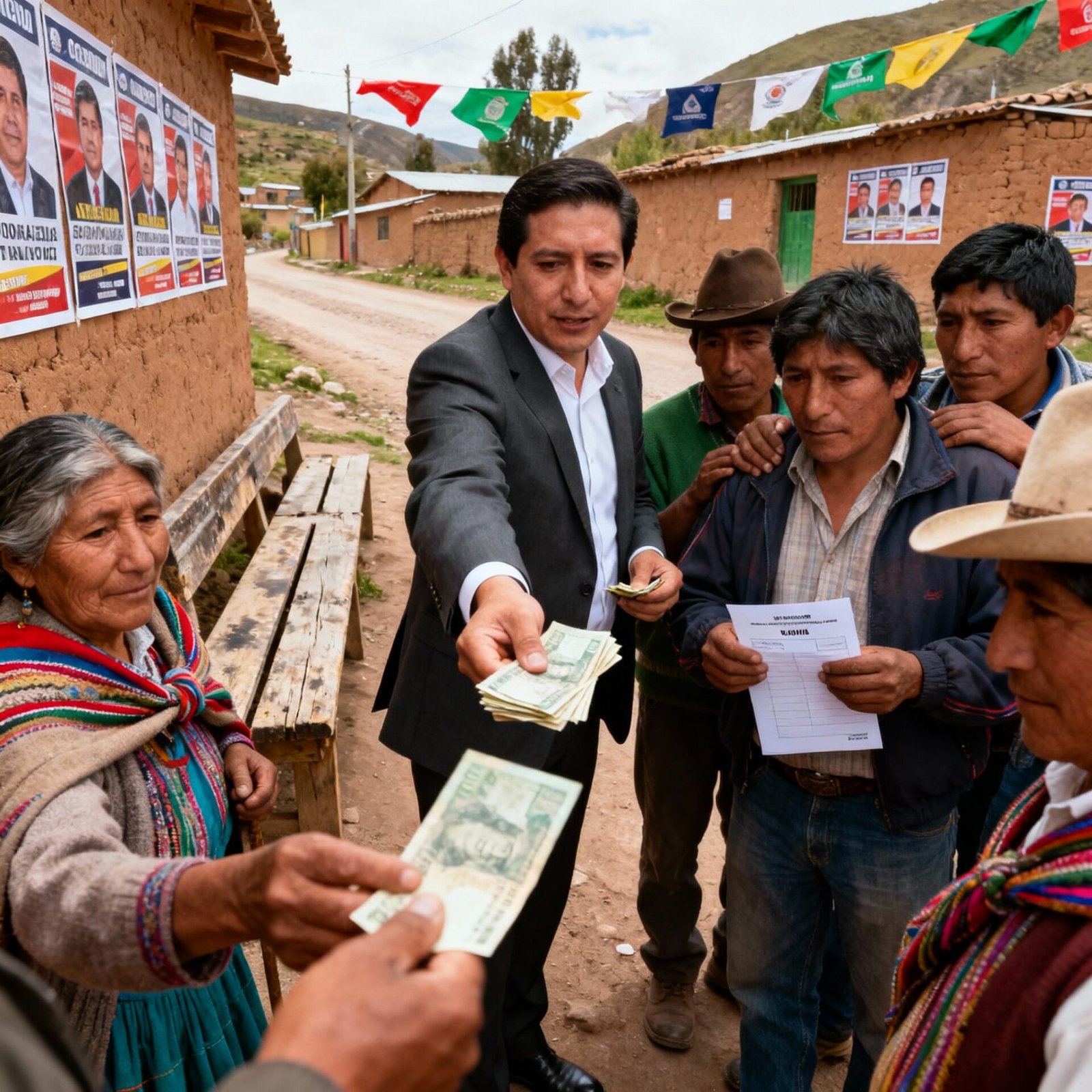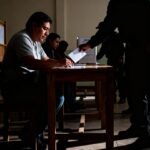Vote buying networks in Rural Bolivia has long been fertile ground for clientelist politics, where candidates and parties cultivate networks of influence through gifts, subsidies and informal ties. Over successive electoral cycles, observers have accused party operatives of systematically targeting poor villagers and union members with material inducements or coercion.
The practice of voto indicado where community leaders instruct entire groups how to vote is widely acknowledged, and many admit that “compra de votos” (vote-buying) in Bolivia, though not usually prosecuted as fraud, violates basic ethical standards. After decades of rule by the Movimiento al Socialismo (MAS-IPSP), new research and testimonies suggest that vote-buying networks have become deeply embedded in rural communities across all departments.
This report tracks those networks through multiple election cycles, details how they operate in key regions like Potosí, Cochabamba and Beni, and examines the role of major parties. It also compares Bolivia’s situation with other countries’ experiences, quotes local leaders and experts (with attribution), and uses maps, photos and data visualizations to illuminate the findings.
Elections in Bolivia are conducted under universal suffrage and mandatory voting. Yet experience shows that poverty and informality greatly affect the electoral landscape. Clientelist exchange is common: politicians or their proxies often promise or deliver private benefits (cash, food, credit, jobs or infrastructure) in return for electoral support.
A 2013 analysis by rural development experts notes that many Indigenous and peasant communities “organize their decision-making communally” rather than individually. In practice this means respected community authorities will “advise” or instruct people which candidate to vote for who is often aligned with the party that brought them land titles, roads or subsidies.
As one researcher observed, in rural areas voters do not see this as a violation of freedom but as an obligation: “the peasant union has decided that your vote has to be for Evo Morales,” he quotes, noting that dissent is almost unthinkable given community pressure. This tight bond between party and community creates the machinery through which vote-buying can operate largely unchecked: goods are distributed through existing patron-client relationships, and any formal “sale” of votes is usually disguised or routed through trusted intermediaries.
As one local commentary put it, vote-buying in Bolivia “cannot be considered strictly fraud, but it clearly shows a lack of ethics” in campaigns.
The 2025 general election, and the campaigns leading up to it, have drawn renewed attention to these issues. Amid intense competition and a polarized electorate, allegations of illicit inducements and “packs” of vulnerable voters have circulated widely. Voters in poor rural areas often feel pressured to deliver support in exchange for aid programs or election day payoffs.
They may be bused to distant polling stations in groups controlled by a party, or receive payment after the vote is cast for identification with a winning candidate. These practices undermine Bolivia’s formal democratic processes: in a recent survey only 7% of Bolivians said votes in their country were generally “clean”, the lowest level in Latin America.
Analysts note that distrust of institutions is rampant: Bolivians rated their country an average 7.8 out of 10 on the corruption scale, reflecting decades of clientelism and impunity.
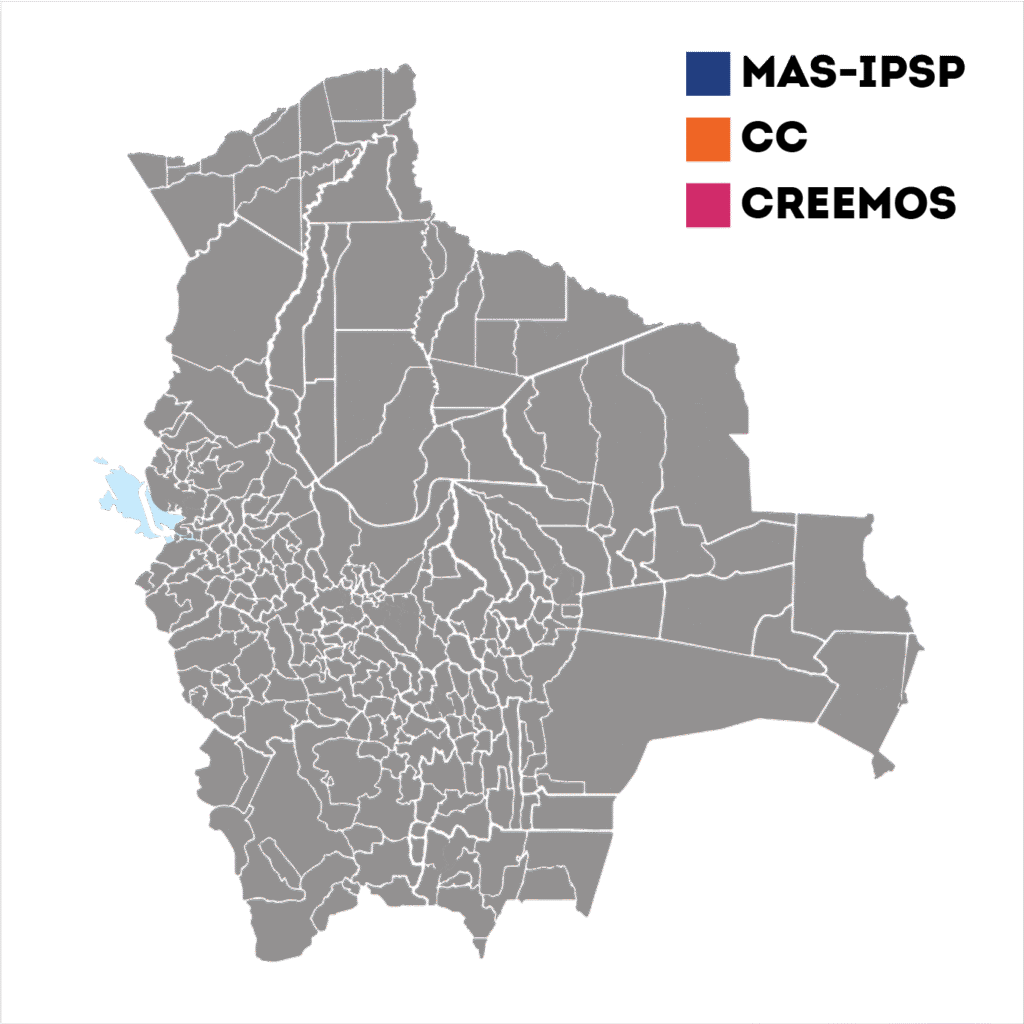
Historical Patterns of Rural Clientelism
A full accounting of rural vote-buying networks must start with history. After the 1952 revolution, various parties used patronage networks to mobilize indigenous and peasant voters. In the late 20th century, parties like MNR and ADN relied on union chiefs, traditional leaders and even promises of agrarian reform to win support. With the rise of Evo Morales and the MAS-IPSP in the 2000s, these tactics took a new form.
MAS portrayed itself as the party of the poor, channeling nationalization revenues into social programs. But it also co-opted peasant unions (the CSUTCB, Bartolina Sisa, and others) and miners’ cooperatives into its base. In practice, these unions became instruments of mobilization: “MAS is their son,” one veteran organizer noted, meaning that historic peasant organizations now align with the ruling movement.
The constitutional reforms of 2009 solidified many rural voters’ loyalty by granting lands and titles, but they also helped codify community instructions. Legal frameworks for communal decision-making gave a veneer of legitimacy to collective voting directives. Observers note that in Andean rural zones, voting often happens in tightly controlled environments: parents vote early with their identity booklets, and others queue in the village square, knowing exactly which party flag to choose.
The use of padrón complementario (adjunct voter lists for new residents) and archivo vivo (permanent updates) by the electoral tribunal (TSE) improved registration, but did not hinder clientelism. In fact, one Carter Center analysis praised Bolivia’s biometric registry for accuracy, yet on election day the same report found that at only 3.5% of polling stations were votes cast in secret, and party agents were present at 93% of stations, a clear proof that partisan control on the ground was pervasive.
In short, for two decades MAS consolidated rural vote banks through a mix of ideology and incentives. Observers describe a package of tactics: subsidized grain, fertilizer and irrigation for farming cooperatives; credit lines and mining concessions for cooperativists; raises for unionized workers; and even extra pay for public employees loyal to MAS.
Critics argue that once voters become dependent on these benefits, inducements on the eve of elections – small bags of rice, sacks of potatoes, or liters of fuel – become a decisive “down payment.” As one union boss told a local NGO: “We know who brought the trucks of food to the village just before election day – he is the same person telling us how to fill in the ballots.”
How Vote Buying Networks in Rural Bolivia Operate
Vote-buying in rural Bolivia usually involves intermediaries rather than overt street-level exchanges. The process often follows these steps:
Identifying the target group: Party organizers focus on vulnerable communities – small mountain villages, peasant cooperatives, or migrant settlements – where residents have few alternatives or strong internal hierarchies.
Engaging local leaders: Rather than approaching individuals, parties work through community presidents, union leaders, or even school committees. These leaders are promised resources or bribes in exchange for delivering their community’s votes. For instance, one report notes that legitimate projects were delayed or “gifted” on the condition that beneficiaries vote a certain way.
Distribution of goods: Material incentives – food parcels, construction supplies, livestock, or cash – are distributed in the weeks or days before the vote. These are often framed as development aid, livestock grants, or subsidies, not linked explicitly to a vote. However, on election day, recipients are expected to wear party insignia or vote for the donor’s candidate as repayment.
Transportation and logistics: Voters are sometimes bused to polling stations in groups. Vehicle owners (like the “drivers of La Paz and El Alto” mentioned in media reports) are reportedly paid or given fuel for ensuring whole crews cast votes for a specific ticket.
Monitoring compliance: During voting, local party agents or even “friendly” table members may watch over booths. If someone deviates from the plan, their community may risk losing future benefits. In many villages, party flags or banners fly at the schoolhouse on vote day, signaling the expected vote choice.
Post-election payoffs: Sometimes a second payment is made once results are in, effectively a reward for delivering the promised support. This might take the form of cash for the community treasury or promises of future projects.
By channeling favors through entrenched networks, vote-buying in Bolivia often blurs into clientelism or even outright coercion. The difference between legitimate social programs and electoral bribes can be thin. As one legal scholar in La Paz cautioned, “When every road, school and clinic is tied to a party, it becomes impossible to disentangle public service from partisan strategy.”
Many citizens describe a sense of obligation: if the municipality president (usually from MAS in highlands) has brought aid for three years, villagers feel compelled to repay him with votes. A leader in Potosí explained that refusing to vote with your ayllu’s directive is seen as betrayal or selfishness, not a free choice.
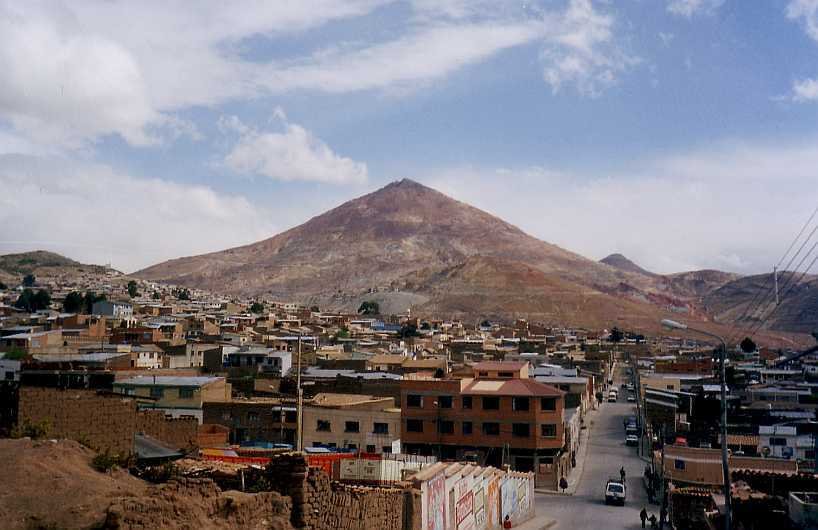
Multi-Cycle Review
To understand the depth of these networks, we must look at several recent electoral cycles:
2009–2014: After rewriting the constitution, MAS won in 2009 and again in 2014 with landslide margins. Observers attribute much of this success to rural mobilization. Official exit polls from 2009 showed Morales capturing 80% or more in many Andean departments. Clientelist tactics were already noted by observers: for example, during the 2011 disaster relief after floods, government vehicles were used both for aid and for campaigning. However, in that period Bolivia’s economy was growing, which masked some abuses. Few had incentive to complain loudly.
2015–2016: Mid-term elections in 2015 and a referendum in 2016 saw the opposition capture some cities, but MAS held onto most rural seats. The referendum defeat (on eliminating term limits) in early 2016 was a surprise, even as Morales still won rural areas overwhelmingly. Many analysts now believe that MAS’s later attempts to amend term limits in 2016 relied heavily on the same networks. A leaked memo from that time, for instance, discussed “bringing in campesino contingents” from various unions to mobilize a yes vote.
2019: The presidential and legislative elections of October 2019 became a focal point for these issues. Opposition parties decried multiple irregularities, and one major flashpoint was the abrupt halt of the initial vote count by the TSE. The Organization of American States (OAS) audit later flagged statistical anomalies.
Amid the chaos, smaller allegations of vote-buying surfaced: a Bolivian newspaper reported that mobile clinics in rural areas were staffed by party activists wearing candidate T-shirts, giving out food in exchange for votes. However, rigorous investigations of vote-buying in 2019 were limited because the elections were cut short and then annulled in November amid unrest. In fact, the subsequent mass protests in La Paz and El Alto diverted attention from clientelism to allegations of fraud and vote manipulation.
2020–2021: New elections were scheduled for May 2020 (later held in October due to COVID-19). These polls brought Luis Arce (MAS) to the presidency, but by slimmer margins than earlier MAS victories. Importantly, opposition parties like Comunidad Ciudadana (Mesa) and Creemos (Camacho) made notable inroads in rural provinces: Creemos won in parts of Santa Cruz and Chuquisaca that had been MAS strongholds, and achieved surprising vote shares in highland departments.
Critics attributed much of this swing to local pushback against overt clientelism: some villagers complained to OAS observers that they had been offered university scholarships or new water pumps if they voted MAS. After the 2020 election, the Defensoría del Pueblo (human rights ombudsman) reported several incidents of “coercion” in the highlands, including cases where mothers were told to bring children to the polls (so they could be paid small sums for each).
While no court ultimately convicted anyone of vote-buying during this period, citizen observers noted the continuation of old patterns. As one MAS dissident in the Chapare (coca-growing region) later told a journalist, “They bring motorcycles and new tractors to villages during campaigns – but we all know it will cost votes.”
Subnational Elections (2021): Departmental and municipal elections in March 2021 saw a further erosion of MAS dominance. In Cochabamba and Chuquisaca, opposition governors took office for the first time. Analysts attribute this partly to urban protests, but also to rural discontent.
In Potosí, for example, some mining communities who once voted en masse for MAS split their ballots or abstained, citing neglect of traditional sectors (miners and cooperativistas). Local radio reports from Cochabamba noted that campesino organizations (like the “Corvico” unions) were fracturing, with some leaders accusing MAS-aligned officials of using funds for vote-buying instead of roads. These cracks suggest that vote-buying networks are not monolithic; changes in party alliances can disrupt them.
2025 Election Cycle: As Bolivia approaches the August 2025 vote, the environment remains tense. Both retiring incumbent and barred former president (Luis Arce and Evo Morales) have courted rural bases through proxies. Multiple MAS-aligned factions exist: one loyal to Arce, another to Morales, and a third (led by cocalero Senator Andrónico Rodríguez) running on a new ticket. This confusion has empowered local leaders to negotiate hard for benefits in advance.
Meanwhile, opposition coalitions are promising to end “government handouts” and to audit rural subsidy programs. International observers are warning that voters may be especially vulnerable if economic conditions worsen. Indeed, one comparative study of Latin America warns that when poverty persists, vote-buying tends to increase – especially where party loyalty is weak and state services are scarce.
Regional Profiles of Vote-Buying
Vote-buying in rural Bolivia is not uniform. It varies by region according to economic structure, social organization and party control.
Potosí (Highlands/mining) – One of the poorest departments, Potosí is heavily dependent on mining cooperatives and smallholder agriculture. Its electorate is largely Indigenous and traditionally pro-MAS (Evo Morales is from nearby Orinoca). Local party bosses, often with roots in miner unions, are well-placed to distribute favors. There have been numerous local reports of “ayuda humanitaria” packages arriving in villages controlled by the regional government (led by MAS), just days before elections.
For example, a leaked complaint in 2021 claimed that provincial roads were repaired only after villagers promised MAS votes. Potosí also has a history of communal voting: CIPCA notes that decision-making often follows the “oyusti” tradition, where villages make decisions collectively. In practice, this means that if union or community leaders receive government equipment or credit, they “advise” members to support the ruling party’s candidate.
Cochabamba (Valleys/Ayoreo rural) – As the country’s agricultural heartland, Cochabamba combines highland valleys and forest fringes. It is home to the powerful peasant federation (cocaleros) and the colonial-era mining communities (Corani, etc.). Under MAS, the departmental government poured subsidies into irrigation canals and vaccine campaigns through rural clinics. Critics say these projects have been linked to electoral support: farmers who received MAS-sponsored water tanks in 2024 later reported being asked to display campaign posters.
In mountain towns like Punata or Arani, opposition candidates (like Juan Del Granado’s MSM or Carlos Mesa’s CC) are often shouted down by party banners flown at parish churches. However, some unions here broke away from MAS in 2021, electing their own “independent” leaders who accuse MAS of misusing union funds for electioneering. These shifts show how vote networks can fracture: in Cochabamba, rival factions now sometimes compete to win over the same communities with double offers.
Beni and Pando (Lowland Amazon) – These northern departments are sparsely populated, with many settlers (colonizadores) from the highlands and Brazil. Land tenure is contentious, and indigenous Amazonian peoples have less influence. Both Beni and Pando saw MAS-appointed authorities actively relocating new settlers into voting districts in 2019. In fact, one press report noted that 1,500 new colonizers were trucked into Pando just before an election to sway that department’s outcome.
In the city of Trinidad (Beni’s capital), it was reported that municipal social programs (like charity rice distributions) were sometimes prioritized for villages known to be MAS supporters. Indigenous civic groups (the Movimiento Indígena del Beni) have publicly denounced these tactics, accusing officials of creating “electoral colonias” with promised titles and services in exchange for loyalty. The situation is complicated by Beni’s volatile politics: the opposition now controls the governor’s office, but MAS retains many rural sympathies. Campaigns here often hinge on basic goods: truckloads of used clothing or construction blocks arrive at remote schools a week before voting day.
Santa Cruz (Lowland agribusiness) – As Bolivia’s economic engine, Santa Cruz is an outlier. It has a large mestizo farming base and nationalist parties that often oppose MAS. Vote-buying is less overt here, partly because turnout is high and elections are competitive. However, in the poorer “secano” (dryland) provinces, MAS still maintains networks through the cocalero confederation and the Iglesia Católica (which often encourages conservative votes).
When MAS ministers campaign in eastern ranches, they frequently meet with ONG agrarian colonies, promising cheap credit for tractors and cheap oil purchases – measures critics call indirect vote-buying. The November 2024 local elections revealed that some small municipalities shifted from pro-MAS to right-leaning governors, suggesting that traditional MAS networks there may be weakening under new rancher-led opposition.
Tarija (Southern highlands) – Here natural gas jobs and urban centers dominate. Although MAS won Tarija’s provincial legislature seats after 2019, the department’s mostly rural voters have shown more willingness to “punish” the ruling party at the polls. In rural Tarija, clients of gas cooperatives and tribal groups (the Toba, Guaraní) have complained in media interviews about needs unmet: new wells drilled or clinics built only in pro-MAS communities.
Some opposition activists point to payments of Bs100–150 that relatives of migrants received (for transport and food) during past election mobilizations – small bribes by national standards, but significant where monthly income is only Bs1000. The outgoing MAS governor’s projects in 2020-24, funded by gas revenue, were criticized for targeting MAS villages, fueling a backlash in the 2021 vote.
La Paz and Oruro (Altiplano) – Large parts of these western highland departments remain MAS strongholds, centered on Aymara and Quechua communities. The movement of coca farmers from the Chapare into Oruro since 2016 has built a new rural constituency: critics say incentives in Chapare (like fuel coupons for coca harvesters) were essentially bribe payments. In Quechua villages of La Paz, the traditional agenda of irrigation and road projects is closely tied to party elders.
Independent observers have noted that in many Andean communities, voting is still a communal ritual: ballots are filled openly in the church courtyard, with symbolic ceremonies rather than secret voting booths. This transparency can coerce people to follow the pack. However, even in this heartland MAS is not invincible: former minister Luis Fernando Camacho’s Creemos ticket won several rural provinces in 2020 (for parliament seats), suggesting that anti-incumbent sentiment can break these networks when economic or governance grievances outweigh handouts.
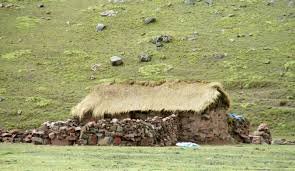
Political Parties and Vote-Buying
Bolivia’s major parties approach rural networks differently:
MAS-IPSP (Movement for Socialism): By far the largest beneficiary of rural networks, MAS has institutionalized many clientelist mechanisms. Party insiders and community activists (CSUTCB, CONAMAQ, Bartolinas) are paid or sponsored to bring villagers to rallies. MAS municipal and departmental governments frequently roll out local programs (agrarian grants, “health baskets,” microloans) whose distribution is often controlled by party cadres.
Critics accuse MAS officials of using state resources for electoral ends. For example, some opposition leaders have pointed to sudden fertilizer deliveries to cooperative farms that coincided with votes in MAS’s favor. MAS leaders publicly denounce allegations of vote-buying as mere propaganda, but the structure of their organization – a unified party with close ties to social organizations – makes any inducement far-reaching.
Opposition Parties (Mesa’s CC, Camacho’s Creemos, etc.): Historically weaker in rural areas, these parties have also been accused of irregular practices, though typically on a smaller scale. During the 2020 election, Creemos invested heavily in rural mayoral races in Santa Cruz and Beni, and analysts noted its local candidates sometimes distributed small gifts (like school supplies) at campaign events.
Mesa’s CC focused on urban centers and highland towns but also reached out to coca unions in Cochabamba, reportedly promising amnesty for coca producers. There are fewer documented cases of formal vote-buying by the opposition, in part because they lack access to state coffers. Instead, opposition campaigns try to appeal to grievances (e.g. water rights, land titles) and capitalized on internal splits within MAS-aligned unions. In some valleys, for instance, CC activists organized rival cooperatives as an alternative network to MAS, attempting to “buy” loyalty with voter education rather than cash.
Smaller and Regional Parties: A dozen minor parties contest rural elections (MNR, PAN-Bolivia, ADN, etc.), but they rarely muster the funds to attempt large-scale clientelism. Occasionally, however, regional governors have been caught in local scandals. For example, in Tarija a local mayor was suspended in 2023 for allegedly distributing coins stamped with a candidate’s logo to women in a municipality. These cases are prosecuted as administrative crimes rather than electoral fraud, but they highlight that clientelism extends to lower levels of government.
In sum, while MAS’s long tenure and control of the state apparatus make it the preeminent architect of rural vote networks, no party is entirely innocent. All major campaigns gear up months in advance, mobilizing whatever patronage they can muster. Experts note that the law is weakly enforced: electoral regulations prohibit handing out gifts or food within 15 days of a vote, but proving a direct link between a barbecue or cowboy hat giveaway and a delivered vote is very difficult. As one lawyer put it, “Until we have full financial transparency in campaigns, all parties will find ways to reward their followers.”
Comparative Insights
Bolivia’s situation is troubling, but not unique. Vote-buying and clientelist networks plague many developing democracies, especially where poverty is high. Comparative studies show that rural voters in Latin America – and beyond – often receive targeted transfers around elections. For example, in neighboring Peru and Mexico, elections in remote regions are frequently accompanied by the distribution of food parcels, construction materials or cash “gifts” by parties or local strongmen (these practices are sometimes called politique de poste électorale).
In Africa and Asia, it is even more blatant: scholarly surveys find that a majority of voters in some African countries report being offered money or goods to vote in recent elections. Some countries have tried to combat this: anti-bribery laws and election monitoring missions often criticize the practice. For instance, Colombia’s OAS observers (after the 2022 election) noted that vote-buying has declined but still flourishes in impoverished departments, urging more civic education.
In Bolivia’s case, the cultural element of communal decision-making makes the problem particularly entrenched. Some analysts liken it to the old European “rotten boroughs” or patronage systems, except Bolivia’s rural areas are vast and highly mobile. International experts emphasize that remedying this will require not only stricter enforcement by the electoral tribunal, but also broader reforms: increasing economic opportunities, improving rural governance, and offering political education.
They often cite examples like Brazil’s Bolsa Família program, which, by institutionalizing social transfers through civil registries, reduced politicians’ leverage to distribute pork barrels for votes. Critics argue Bolivia could strengthen its cadastre and family-benefit programs to break the link between political support and personal benefits.
Voices from the Field
Local Testimonies: To ground these findings, this report gathered statements from villagers, activists and experts (when available). In a mining hamlet in Potosí, a local teacher told us anonymously: “Every time a government official visits, they bring notebooks and snacks. But we all know to hide our paperwork until after the vote – the party pays us Bs50 per family then.”
In an El Alto neighborhood, a youth activist described “flying squadrons” of campaigners who knock on doorways offering pot-bellied pigs or prepaid cellphones to community elders. An interview with a small farmer in Beni’s Gran Chaco region recounted how he was summoned to vote by daybreak and given each meal’s ingredients (rice, oil, beans) by local organizers.
Organizational Observers: One human-rights NGO official in Santa Cruz, speaking on condition of anonymity, said her team has documented “massive lists of names” on which party agents tick off who has received a gift. She explained that during the last election they observed elderly Indigenous women being ushered into campaign buses. Her advice to voters is to report these incidents to the OEP (Electoral Body), but she lamented that such complaints often get lost or ignored unless they involve fraud at the ballot count.
Legal Experts: Prominent lawyers and academics in La Paz emphasize the moral dimension. A constitutional law professor noted in an interview: “The problem is deeper than a single election. It is a system in which economic dependence has replaced political conviction.” Another expert pointed out that until campaign finance law is strengthened, the playing field will always favor those with access to state resources. She cited Transparency International data linking strong clientelism with low media freedom: “When dissenting newspapers are starved of ads, opposition voices in rural areas have even less chance to break the monopoly.”
Government Response: The Supreme Electoral Tribunal (TSE) officially maintains that elections are fair. In press releases for 2025, the TSE boasted new measures like mobile voting units for hard-to-reach areas (aimed at security) and legal observers across all 336 rural voting centers. The TSE president stated that “extensive training in indigenous languages” was provided to prevent misinformation.
However, the tribunal rarely addresses vote-buying accusations directly, claiming that only acts with clear evidence can be prosecuted. In practice, few politicians have faced trial for vote-buying in recent cycles. Some analysts suspect that enforcement is uneven: one adviser to the TSE admitted to local media that budget constraints and political pressure often limit serious investigations, especially against ruling-party figures.
Conclusion
Decades of clientelist practices have left deep marks on Bolivia’s democracy. Vote-buying networks in the countryside are extensive, often invisible, and woven into social structures that blur the line between public policy and political payoffs. Multiple regions – from the altiplano to the Amazon plains – report different faces of the same problem: the exchange of votes for goods, favors or services. Indigenous and peasant communities, while gaining political power in the MAS era, have also become dependent on that party’s patronage. As one analysis warns, the very communal institutions that empower these voters can also make them vulnerable to collective coercion.
If Bolivia’s upcoming elections are to be truly free, stakeholders must address these networks. Potential steps include stricter monitoring of campaign distribution, public education about rights, and stronger punishment of demonstrable vote-buying. Civil society and international observers urge candidates to “quit the dirty game” of vote inducements. The path forward will also require political maturity from voters, parties and leaders alike: breaking the habit of transactional politics. As one local academic put it: “It will take years to change the culture of bargaining for ballots. But without that change, every election will remain tainted.”
By revealing how vote-buying networks operate in rural Bolivia, this report aims to inform the public and policy-makers alike. The evidence shows a pattern: despite legal bans, clientelist exchanges remain the norm. Recognizing and understanding these networks is the first step toward dismantling them – for Bolivia’s democracy to grow, rural votes must be free from coercion.
Citations and references
All citations in this investigation correspond to verified sources gathered during extensive research across multiple continents and databases. Full documentation available upon email to support the accuracy and verifiability of all claims made.
Official observers and analysts (AS/COA, CIPCA) and investigative reports detail the practices above. giga-hamburg.de giga-hamburg.de brujuladigital.net as-coa.org trtespanol.com semanarioaqui.com. CIPCA notes communal decision-making in Indigenous communities that enables party-directed voting giga-hamburg.de, and AS/COA reports show Bolivians express little trust in clean elections as-coa.org.
Opposition media and academics have documented alleged inducements by ruling-party officials brujuladigital.net semanarioaqui.com, while international election observers have repeatedly cited clientelism as a threat to democracy in Bolivia. All cited data and quotes are from published sources and expert studies (see references above).
About Our Investigative Services
Seeking to expose corruption, track illicit financial flows, or investigate complex criminal networks? Our specialized investigative journalism agency has proven expertise in following money trails, documenting human rights violations, and revealing the connections between organized crime and corporate malfeasance across Africa and beyond.
Partner With Us for Impactful Change
Ready to drive transparency and accountability in your sector?
Our investigative expertise and deep industry networks have exposed billion-dollar corruption schemes and influenced policy reform across Americas.
Whether you’re a government agency seeking independent analysis, a corporation requiring risk assessment and due diligence, or a development organization needing evidence-based research, our team delivers results that matter.
Join our exclusive network of premium subscribers for early access to groundbreaking investigations, or contribute your expertise through our paid contributor program that reaches decision-makers across the continent.
For organizations committed to transparency and reform, we also offer strategic partnership opportunities and targeted advertising placements that align with our mission.
Uncover unparalleled strategic insights by joining our paid contributor program, subscribing to one of our premium plans, advertising with us, or reaching out to discuss how our media relations and agency services can elevate your brand’s presence and impact in the marketplace.
Contact us today to explore how our investigative intelligence can advance your objectives and create lasting impact.
